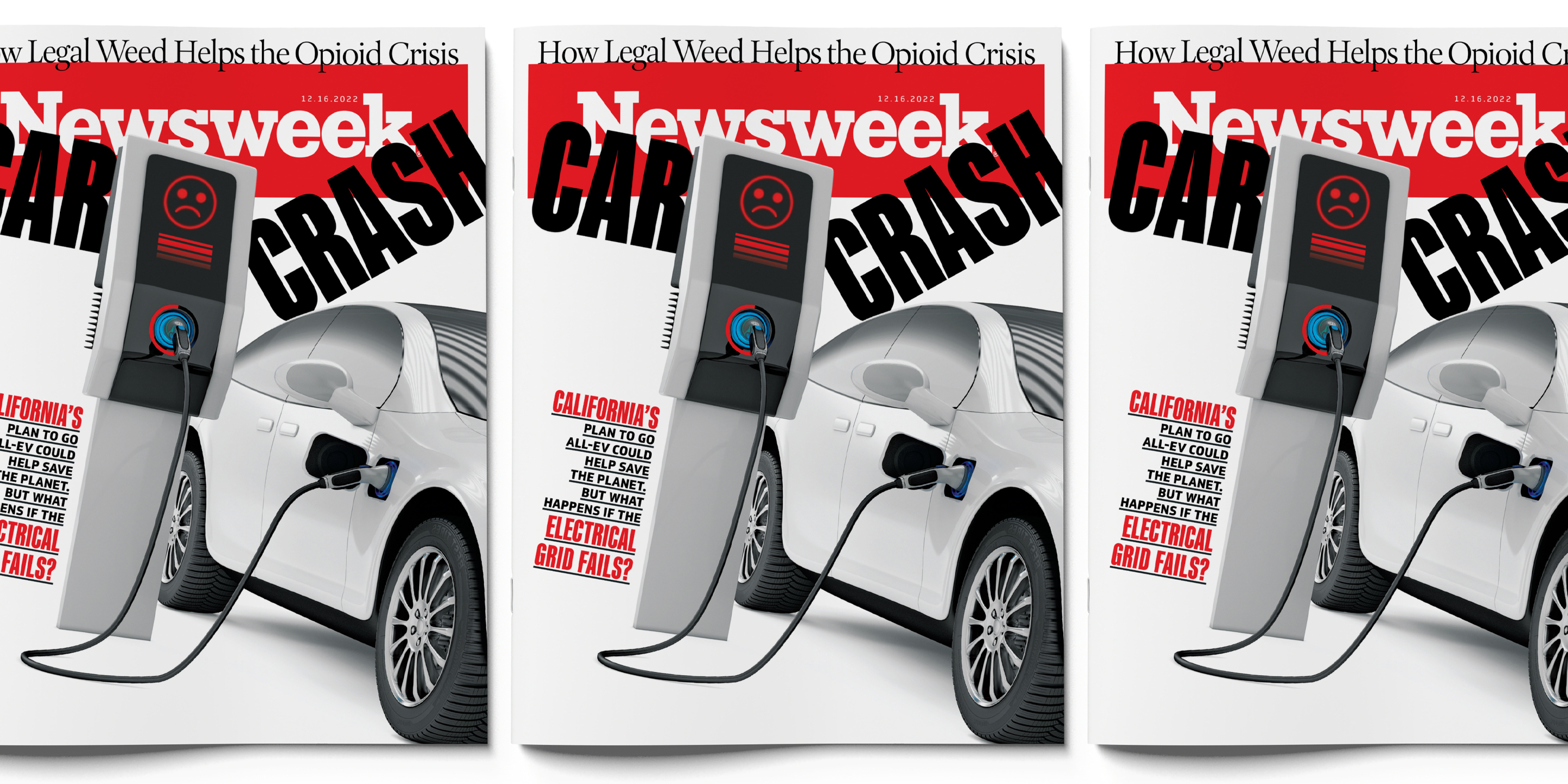Car Dealers Renew Opposition To Electric Vehicle Mandates

Table of Contents
Financial Concerns and Infrastructure Readiness
Dealerships argue that the transition to EVs presents significant financial hurdles and requires substantial infrastructure investment, making government mandates premature. These concerns stem from two key areas:
High Upfront Investment Costs
The shift to selling and servicing EVs requires dealerships to make considerable upfront investments. This includes:
- Specialized Technician Training: Training existing mechanics on the intricacies of EV technology, battery systems, and electric motor repair is costly and time-consuming.
- New Equipment Investment: Dealerships need to invest in specialized tools and equipment for diagnosing and repairing EV batteries, charging systems, and other unique components. This goes beyond simply adding a few charging stations.
- Uncertainty Regarding ROI: The EV market is still developing, making it difficult for dealerships to accurately predict the return on investment for these substantial upfront costs. Will the increased EV sales sufficiently offset these expenses? This uncertainty is a major deterrent.
Lack of Government Support for Infrastructure
Dealerships contend that government mandates are being implemented before the necessary infrastructure is in place to support widespread EV adoption. This lack of support manifests in several ways:
- Insufficient Public Charging Infrastructure: The current network of public charging stations is inadequate to meet the demands of a largely EV-powered market, particularly in rural areas. Range anxiety remains a major hurdle for potential EV buyers.
- Concerns About Grid Stability: A sudden surge in EV adoption could strain existing electricity grids, potentially leading to power outages and instability. Upgrading grid capacity is a costly and lengthy process.
- Call for Coordinated Government Investment: Dealerships are calling for significant and coordinated government investment in expanding charging networks, upgrading grid infrastructure, and providing financial incentives to support the transition.
Consumer Demand and Market Readiness
Beyond infrastructure challenges, dealerships highlight concerns about the current level of consumer demand and readiness for a rapid shift to EVs.
Limited Consumer Demand in Certain Regions
EV adoption rates vary significantly across different regions. Mandates, dealerships argue, fail to account for these geographical disparities:
- Urban vs. Rural Differences: EV adoption is significantly higher in densely populated urban areas where charging infrastructure is more readily available. Rural areas lag far behind, largely due to a lack of charging options.
- Influence of Electricity Prices and Charging Availability: Consumer decisions are significantly influenced by factors like electricity prices and the availability of convenient charging locations. These vary greatly depending on location.
- Need for Targeted Incentives: Instead of blanket mandates, dealerships advocate for targeted incentives that address regional disparities and stimulate demand in areas where EVs are currently less popular.
Concerns About Consumer Readiness and Understanding
Many consumers still lack a full understanding of EV technology, maintenance, and charging infrastructure. Dealerships see a need for more education and awareness campaigns:
- Range Anxiety and Charging Time: Range anxiety and concerns about charging times remain major barriers to EV adoption. Consumers need reassurance about the practicality of EVs in their daily lives.
- Lack of Knowledge About EV Maintenance and Repair: Many consumers are unfamiliar with the unique maintenance and repair needs of EVs. Increased consumer education is crucial.
- Advocacy for Increased Consumer Education Initiatives: Dealerships are advocating for increased government-funded initiatives to educate consumers about the benefits, limitations, and practicalities of EV ownership.
The Impact on Existing Businesses and Jobs
The rapid transition to EVs also raises significant concerns about the impact on existing dealerships and their employees.
Potential Job Displacement in the Short Term
A swift shift away from internal combustion engine (ICE) vehicles could result in job losses for mechanics specializing in ICE technology:
- Need for Retraining Programs: Government-funded retraining programs are essential to help mechanics transition to EV-related jobs, ensuring a smooth transition for the workforce.
- Government Support for Workforce Retraining: Investing in retraining programs and providing financial support for workers during the transition period is crucial for minimizing job displacement.
- Emphasis on a Smooth Transition for Employees: A collaborative approach, involving government, manufacturers, and dealerships, is needed to facilitate a smooth and equitable transition for all employees.
Concerns About the Devaluation of ICE Vehicle Inventory
Dealerships are also worried about the potential devaluation of their existing ICE vehicle inventory as the demand for EVs increases. This could lead to significant financial losses:
- Impact of Government Policies on Used Car Markets: Government policies promoting EVs could negatively impact used car markets, further reducing the value of ICE vehicles.
- Need for Government Support Mechanisms: Government support mechanisms might be necessary to help dealerships manage the transition and mitigate the potential financial hardship caused by the devaluation of ICE vehicle inventories.
- Potential for Financial Hardship for Dealerships: Dealerships with large ICE inventories could face significant financial difficulties if the market shifts too rapidly.
Conclusion
The renewed opposition to electric vehicle mandates from car dealerships highlights the complex challenges inherent in the transition to a fully electric automotive sector. Concerns about financial burdens, consumer readiness, and job security are legitimate and require careful consideration to ensure a smooth and equitable transition. Governments must adopt a balanced approach, combining incentives with substantial investment in infrastructure development and workforce retraining. This will foster wider EV adoption while mitigating negative impacts on the car dealership industry. Only through collaborative efforts can we overcome these hurdles and successfully navigate the shift towards a sustainable automotive future, addressing the concerns surrounding electric vehicle mandates and paving the way for a smoother transition.

Featured Posts
-
 Rowdy Tellez Revenge Watch Him Dominate Former Team
Apr 23, 2025
Rowdy Tellez Revenge Watch Him Dominate Former Team
Apr 23, 2025 -
 Tigers Fall To Brewers 5 1 Second Series Defeat Of The Season
Apr 23, 2025
Tigers Fall To Brewers 5 1 Second Series Defeat Of The Season
Apr 23, 2025 -
 Auto Dealers Intensify Opposition To Electric Vehicle Requirements
Apr 23, 2025
Auto Dealers Intensify Opposition To Electric Vehicle Requirements
Apr 23, 2025 -
 Jackson Chourios Two Home Runs Power Brewers 8 2 Victory Over Reds
Apr 23, 2025
Jackson Chourios Two Home Runs Power Brewers 8 2 Victory Over Reds
Apr 23, 2025 -
 Historic Night For Yankees 9 Home Runs Judges Triple Crown Performance
Apr 23, 2025
Historic Night For Yankees 9 Home Runs Judges Triple Crown Performance
Apr 23, 2025
Latest Posts
-
 9 Potential Nhl Players To Eclipse Alex Ovechkins Career Goal Total
May 09, 2025
9 Potential Nhl Players To Eclipse Alex Ovechkins Career Goal Total
May 09, 2025 -
 Lightning Defeat Oilers 4 1 Kucherovs Stellar Performance Shines
May 09, 2025
Lightning Defeat Oilers 4 1 Kucherovs Stellar Performance Shines
May 09, 2025 -
 Edmonton Oilers Leon Draisaitls Expected Playoff Return Boosts Teams Chances
May 09, 2025
Edmonton Oilers Leon Draisaitls Expected Playoff Return Boosts Teams Chances
May 09, 2025 -
 Leon Draisaitl Injury Update Oilers Star Expected For Playoffs
May 09, 2025
Leon Draisaitl Injury Update Oilers Star Expected For Playoffs
May 09, 2025 -
 Nhl Playoffs Oilers Vs Kings Game 1 Predictions And Betting Picks
May 09, 2025
Nhl Playoffs Oilers Vs Kings Game 1 Predictions And Betting Picks
May 09, 2025
